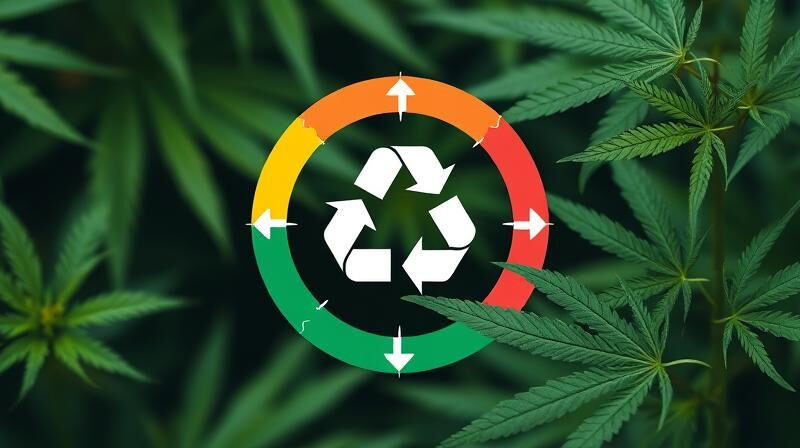Climate change presents a significant global challenge, and Albania is no exception. The country faces serious environmental issues such as deforestation, soil erosion, land and water pollution and deteriorating air quality. To address these pressing challenges, Albania can explore innovative solutions, one of which is the cultivation of industrial hemp (industrial cannabis). This adaptable plant offers a range of environmental benefits that can significantly enhance the country’s sustainability efforts and strengthen environmental protection.
The Versatile Nature of Industrial Hemp
The versatility of hemp positions it as an excellent candidate for Albania’s agricultural sector, providing economic opportunities while promoting environmental sustainability. Its ability to thrive in various climates and soil conditions makes it an ideal crop for local farmers. Furthermore, hemp can contribute to soil health and reduce the need for chemical fertilizers, making it an attractive choice as a sustainable agricultural crop.
Environmental Advantages
- Carbon Sequestration: Hemp is one of the fastest-growing plants and can absorb significant amounts of carbon dioxide from the atmosphere. Research shows that hemp can absorb up to 15 tons of CO2 per hectare each year, making it an effective tool in combating climate change. This quality makes hemp a valuable asset in reducing greenhouse gas emissions and improving environmental protection.
- Soil Health: The deep root system of hemp is essential for preventing soil erosion, rehabilitating contaminated lands, and improving soil structure. Studies have shown that hemp can increase nutrient levels in the soil, making it a beneficial crop for rotation systems. This ability can help restore degraded lands and promote sustainable agricultural practices.
- Water Consumption: Hemp requires significantly less water than many conventional crops, making it a suitable choice for areas with limited water resources. Its ability to survive in dry conditions allows it to grow even in arid environments, thereby reducing the overall demand for irrigation. By cultivating hemp, farmers can help conserve precious water resources while continuing to produce a high-yield crop.
- Reduction of Deforestation: The cultivation of industrial hemp can also contribute to reducing deforestation. Hemp can serve as a sustainable alternative to wood for various products, including paper, textiles and building materials. By replacing wood with hemp, Albania can decrease the demand for logging, thus protecting its forests and supporting reforestation initiatives.
- Agricultural Runoff: The cultivation of hemp can help reduce agricultural runoff, which often contains pesticides and fertilizers, thereby improving water quality in surrounding ecosystems. The deep root system enhances soil structure and promotes better water infiltration, reducing the entry of pollutants into rivers and lakes. By using nutrients more efficiently, hemp also reduces the excess nutrient load that contributes to harmful algal blooms.
- Biodiversity: Hemp fields can support a diverse range of wildlife, including pollinators and beneficial insects. Diverse agricultural landscapes are essential for maintaining ecosystem health and resilience. By integrating hemp cultivation into agricultural practices, Albania can help restore biodiversity and improve ecosystem services.
A Sustainable Approach to Albania’s Environmental Challenges
Industrial hemp offers a promising solution to Albania’s environmental challenges. By promoting hemp cultivation, the country can strengthen its climate resilience, improve soil health, conserve water and support biodiversity. Policymakers and the public should support this green initiative to combat climate change and pave the way for a more sustainable future for Albania, prioritizing environmental protection.



